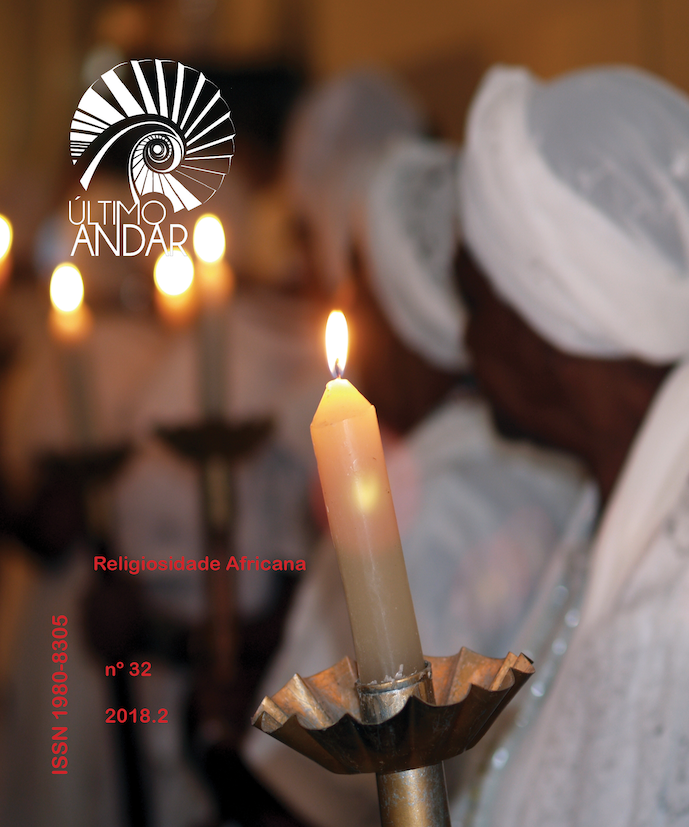A “MORTE” NA DOUTRINA ESPÍRITA DE ALLAN KARDEC: UM COMPARATIVO AOS INVARIANTES CULTURAIS PROPOSTOS POR MAURICE GODELIER
DOI:
https://doi.org/10.23925/1980-8305.2018i2p123-142Palavras-chave:
Morte, Espiritismo, Allan Kardec, Maurice Godelier.Resumo
O objetivo desta pesquisa é investigar a morte na visão da doutrina espírita estruturada por Allan Kardec no século XIX, baseando-nos no sistema de “invariantes culturais” proposto por Maurice Godelier, sendo as “invariantes culturais” características comuns entre diferentes religiões, podendo aplicá-las a fim de obter uma melhor compreensão comparativa entre as tradições. Dessa forma buscamos, não só compreender a temática da morte na obra de Kardec, como também aplicar o modelo de “invariantes culturais” à uma religião que ainda não havia sido abordada a partir dessa ótica.Referências
BOZZANO, Ernesto. A crise da morte: segundo o depoimento dos Espíritos que se comunicam. Brasília: Federação Espírita Brasileira, 2015.
KARDEC, Allan. Revista Espírita: jornal de estudos psicológicos: Ano primeiro. Rio de Janeiro: Federação Espírita Brasileira, 2011.
_____________. Revista Espírita: jornal de estudos psicológicos: Ano segundo. Rio de Janeiro: Federação Espírita Brasileira, 2009.
PIRES, J. Herculano. Educação para a morte. São Bernardo do Campo: Correio Fraterno, 2016.
VILHENA, Maria Angela. Espiritismos: limiares entre a vida e a morte. São Paulo: Paulinas, 2008.
Downloads
Publicado
2018-12-20
Como Citar
Aversa, V. P. (2018). A “MORTE” NA DOUTRINA ESPÍRITA DE ALLAN KARDEC: UM COMPARATIVO AOS INVARIANTES CULTURAIS PROPOSTOS POR MAURICE GODELIER. Último Andar, (32), 123–142. https://doi.org/10.23925/1980-8305.2018i2p123-142
Edição
Seção
Artigo
Licença
Autores que publicam nesta revista concordam com os seguintes termos:
- Autores mantém os direitos autorais e concedem à revista o direito de primeira publicação, com o trabalho simultaneamente licenciado sob a Licença Creative Commons Attribution que permite o compartilhamento do trabalho com reconhecimento da autoria e publicação inicial nesta revista.
- Autores têm autorização para assumir contratos adicionais separadamente, para distribuição não-exclusiva da versão do trabalho publicada nesta revista (ex.: publicar em repositório institucional ou como capítulo de livro), com reconhecimento de autoria e publicação inicial nesta revista.
- Autores têm permissão e são estimulados a publicar e distribuir seu trabalho online (ex.: em repositórios institucionais ou na sua página pessoal) a qualquer ponto antes ou durante o processo editorial, já que isso pode gerar alterações produtivas, bem como aumentar o impacto e a citação do trabalho publicado.


